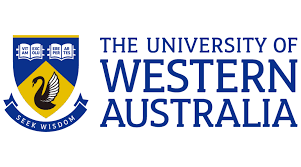University of Western Australia: New $3 million seed-based project built on UWA seeding science
A new $3 million seed-based land rehabilitation project in Western Australia’s South West will build upon new seeding mechanisms designed by The University of Western Australia and Kings Park Science Research Group for use in the Pilbara.
“Our core focus is to co-develop a ‘precision seeding package’ that considers both the ecological needs of the seeds and what enhancements can aid their recruitment, while developing machinery capable of deploying these seeds at scale across diverse landscapes and environments.”
Dr Todd Erickson, UWA
The Cooperative Research Centre for Transformations in Mining Economies (CRC TiME) in partnership with UWA, Alcoa of Australia, and the Department of Biodiversity, Conservation and Attractions (Kings Park Science) today announced the first phase of the Australian Seed Scaling Initiative (ASSI).
The three-and-a-half year project aims to address the challenge of utilising wild-collected native seeds at a scale and efficiency level suitable for large-scale ecological restoration and rehabilitation post-mining.
Dr Todd Erickson, Ecological Restoration theme leader from UWA’s Centre for Engineering Innovation: Agriculture and Ecological Restoration (CEI:AgER), said it would build upon new seeding technology designed by the UWA and Kings Park Science Research Group and would ultimately have application Australia-wide.
“The technology, which more efficiently precision sows diverse mixes of wild-collected seeds in sloped and rocky landforms, will be applied and optimised at Alcoa’s bauxite mine rehabilitation in the Peel and South West region of Western Australia,” Dr Erickson said.
“Our UWA-Kings Park Science restoration and engineering team is excited to lead this new initiative to continue developing and refining a range of seed enhancement technologies and custom-built seed cleaning and precision seeding mechanisms.
“Our core focus is to co-develop a ‘precision seeding package’ that considers both the ecological needs of the seeds and what enhancements can aid their recruitment, while developing machinery capable of deploying these seeds at scale across diverse landscapes and environments.”
CEI:AgER Director Dr Andrew Guzzomi said the research and development permitted through working with Alcoa in the Peel and South West regions would further develop and demonstrate efficient restoration using biologically-informed engineering solutions.
“Learnings gained from this first ASSI phase should then facilitate broader industry adoption of proven mine-site restoration techniques across Australia,” Dr Guzzomi said.
Working with a diverse team of CRC TiME participants, the ASSI project teams plan to develop the technology and process to deploy over similar mined landscapes and severely degraded agricultural environments requiring restoration across Australia.
CRC TiME CEO, Dr Guy Boggs, said ecological restoration was one of the most frequent post-mining land uses and required enormous expertise and technology to achieve long-term success.
“Our ASSI project partners are doing tremendous work that will hugely assist the viability of rehabilitation as a post-mining land use, with improved economic and scientific outcomes,” Dr Boggs said.

